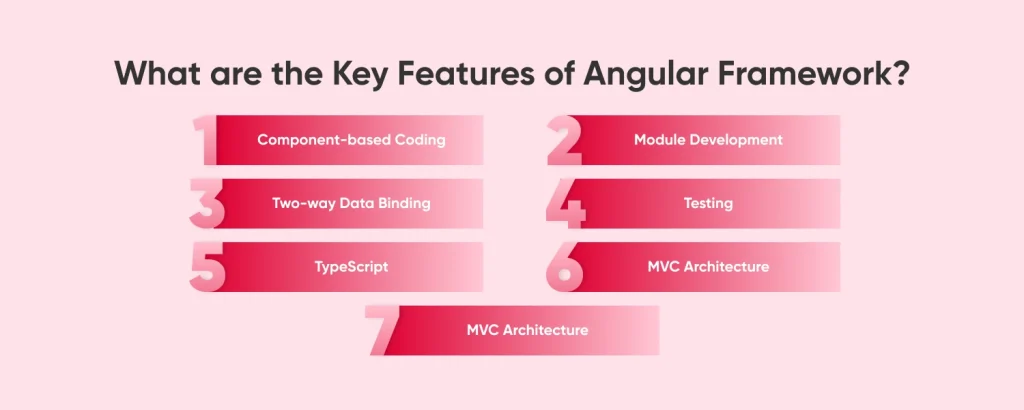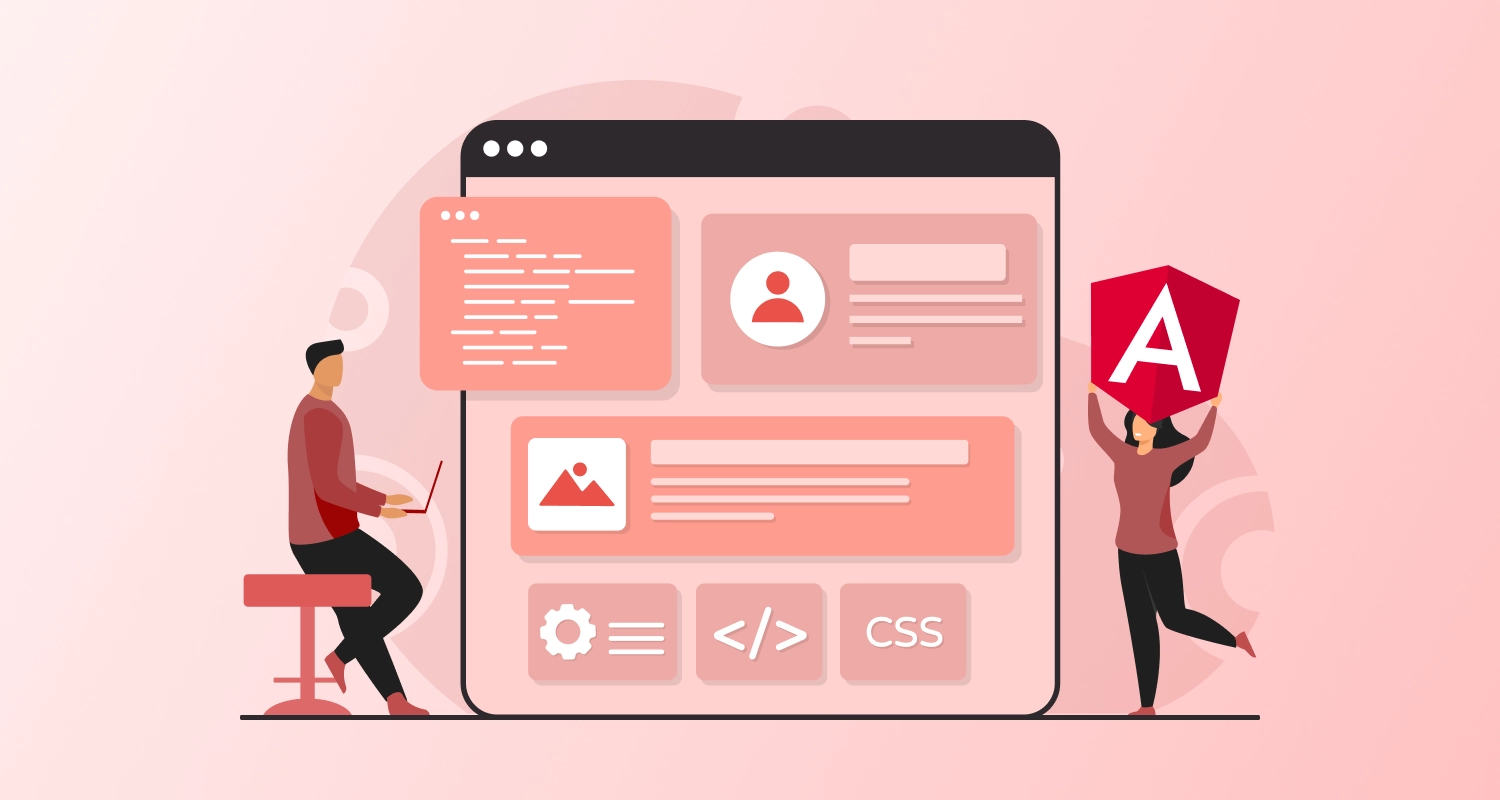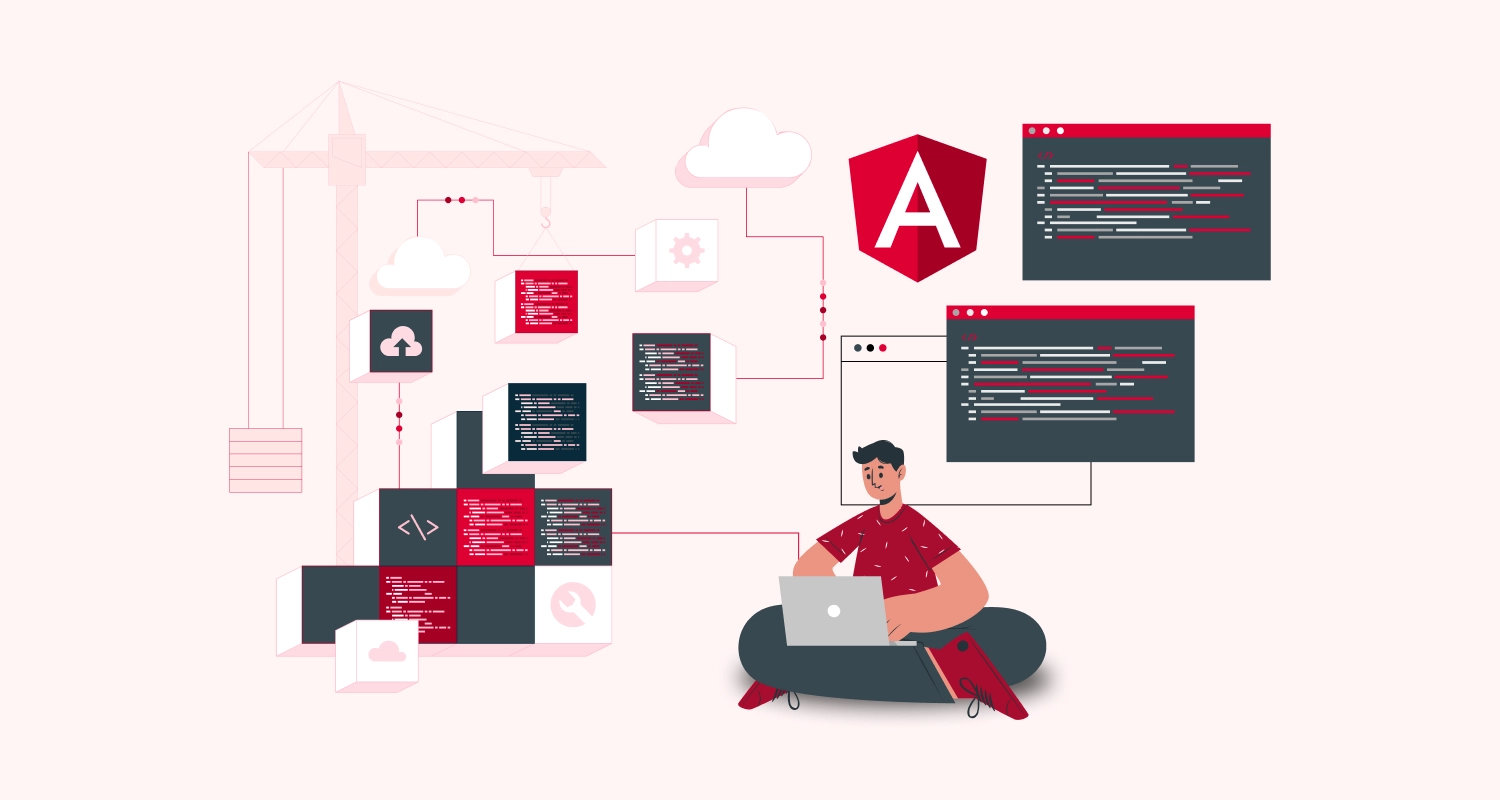Did you know that over $935 billion in revenue is generated by mobile apps?
These figures allow us to conclude that having mobile apps is essential rather than a luxury for a business looking to grow. However, creating an app isn’t always easy, and choosing the appropriate tools for mobile app development is one of the most important factors.
Angular mobile app development is useful in this situation. Angular is a powerful framework that developers like for creating incredibly functional, dependable, and quick apps that run smoothly on a variety of devices. If you are unsure about which model to utilize or how to proceed, Angular is the best option for you.
This blog will explain why you need Angular for development, its features, and how to use a mobile app with Angular.
Why Develop an Angular Mobile App for Your Business?
Angular’s strong and wide-ranging ecosystem makes it one of the most dependable frameworks for mobile apps. The main arguments for using Angular for mobile app development are as follows.
Cross-platform development
Create an Angular app on iOS and an Angular app on Android using a single codebase. Frameworks like Nativescript, and Ionic boost the development of cross-platform applications. With the same codebase, Angular also guarantees a consistent user experience and interfaces.
Performance optimization
When it comes to superior and quicker performance, Angular is a huge success. Its Ahead of Time (AOT) compilation transforms Typescript code into JavaScript and compiles the application while it is being developed. Angular performance optimization reduces runtime errors, improves security, and boosts execution speed in app development.
Code reusability
Because Angular is a component-based architecture, you may reuse several modules, which minimizes the amount of code you write. Because each module is self-contained and made to do a specific task, it is the perfect choice for mobile applications. As a result, it facilitates the reuse of components for other projects or across various application sections.
Native-like experience
Developers create responsive and native-like experience mobile applications with the help of Angular. You can create mobile apps that appear and feel like native apps by using Ionic or Nativescript. Additionally, frameworks provide you access to device functions like file systems, GPS, cameras, and notifications.
A Full Range of Features
With the framework’s comprehensive features and built-in functionality, you can create adaptable mobile applications. Two-way data binding guarantees real-time synchronization between user interfaces and application logic. Dependency injection is another powerful feature that makes managing shared Angular mobile app development services easier while improving testability and reducing code complexity.
Rapid Development
With its powerful capabilities, Angular uses state-of-the-art tools and technology to speed up the development process. To concentrate on developing the essential features, the Angular Command Line Interface (CLI) also streamlines and automates development chores like code generation, project scaffolding, and end-to-end testing.
What are the Key Features of Angular Framework?
A feature-rich and adaptable framework, Angular may be used for a variety of projects. It aids in the development of adaptable and scalable mobile applications for companies.
The main attributes and advantages of Angular are as follows:

Component-based coding
This method of development aids in breaking out application code into parts that can be reused. These are code segments that can be reused for a particular purpose. As a result, they are reusable in many sections of a mobile application or other projects.
Module development
Modular development is a significant advantage of Angular development services. In this instance, mobile applications are separated into manageable, compact pieces. Developers may now create apps with disparate components that function as a whole. It makes debugging and development easier.
Two-way data binding
Utilizing Angular for mobile applications has numerous benefits. This feature allows information to move from the views to the components and back again. As a result, modifications made to the components immediately affect the views and vice versa.
Testing
An excellent choice for testing is Angular. It provides support for a number of testing techniques, including end-to-end and unit testing. Simultaneous testing of modules and components guarantees that every aspect of the application functions as intended.
TypeScript
Angular has an edge over frameworks based on JavaScript because it uses TypeScript. Object-oriented programming, static typing, interfaces, and other characteristics minimize the likelihood of errors and save time.
MVC architecture
MVC design, which divides an application’s structure into three logical parts—Model, View, and Controller is supported by Angular. It separates an application’s business logic from the current layer.
Supporting various libraries
Many libraries are supported by Angular, which makes it easier to create diverse components without relying on third-party libraries. As a result, you can create apps that are higher quality, have fewer errors, and come with ongoing upgrades.
Angular Mobile App Development Limitations
Angular has numerous benefits for mobile app development. However, you must also be aware of some drawbacks to decide if it’s the best option for your project.
Let’s examine Angular application development’s drawbacks:
- Beginners may find the learning curve difficult. Novices may find it difficult to quickly become familiar with Angular due to its intricate features and Angular in micro frontend architecture.
- Because there is more boilerplate code in Angular, the codebase is typically larger.
- Because of this framework’s two-way data-binding capability, more complex apps may experience performance issues.
- When updating between external libraries, there may be compatibility problems.

When to Use Angular for App Development?
Let’s review the several situations in which you can use this framework’s features.
Complex User Interface Needs
AngularJS is thought to be the best choice for developing applications that need user interfaces that are straightforward and easy to use. Two-way data binding, which guarantees automated synchronization between model and display components, is an option.
As a result, it is easy to maintain and update the user interface when the underlying data changes. Additionally, two-way data binding can reduce the requirement for boilerplate code, simplifying the development process.
Development in Modules
The architecture of AngularJS enables modular development. They enable the construction of various app components by breaking programs up into manageable, little modules. Each module has a certain set of features that facilitate debugging and enhance code maintainability. Additionally, modularity guarantees that several new features can be integrated without interfering with the current codebase.
SPAs
The best framework for creating a single-page application is AngularJS, as was previously mentioned. By providing fast and responsive interfaces, the framework’s routing features guarantee smooth navigation even within the application, enhancing the user experience overall. Because user engagement and performance are important considerations, AngularJS is the best option.
Big Development Teams
If you have a big development staff, think about utilizing AngularJS. It has a completely organized structure and adheres to the model-view-controller (MVC) design, which makes the division of responsibilities obvious. It enables team members to work on different app features at the same time. In addition to fostering collaboration among team members—a crucial component of many large-scale projects—this methodical approach effectively preserves code uniformity.
Regular Updates
Apps nowadays require regular updates and maintenance. Developers find it easy to update and maintain apps as fast as feasible with AngularJS. The distinct division of responsibilities and flexible architecture make this feasible.
Because of the framework, developers can update even minor parts of the system without affecting the system as a whole. It guarantees the effective and seamless implementation of upgrades. This feature is crucial for programs that need to quickly adjust in response to user input or market shifts.
Reusability of Code
Code reuse is enhanced by AngularJS’s component-based architecture. Reusable code segments with specialized functionality are called components, which facilitate their reuse in various app sections or even projects. This expedites the development process with great app functionality.
Testing
Testing is the most crucial and key of app development. In addition to app development, as we have already covered, AngularJS is a wonderful choice for testing. It provides comprehensive support for a variety of testing methodologies, including unit and end-to-end testing.
To make sure that every component of the application works as intended, testing of AngularJS modules and components cannot be done separately. The framework places a strong emphasis on upholding strict code quality standards and reducing the possibility of errors in the final product.
Examples of Real-World Angular-based Mobile Apps
Since its launch, AngularJS has had a significant impact on the creation of apps today. Numerous highly regarded apps adopted the framework, which guarantees a smooth user experience and dynamic functioning. Leading applications created with AngularJS include:
- Netflix,
- Google,
- YouTube,
- PayPal
- Upwork
- iStock
Conclusion
For your mobile application, whether it’s for social media, banking, eCommerce, or another kind of software, Angular might be the best option. The choice, however, is mostly based on the objectives and specifications of your project. When creating mobile applications, Angular offers benefits and drawbacks just like any other framework or technology. Because of its intricate architecture, AngularJS development may encounter numerous difficulties.
Hire Angular developers, a skilled team can assist in creating apps with the features and aesthetics you want. They are skilled and knowledgeable enough to use Angular to create unique mobile applications. You can get in touch with CMARIX and discuss the needs of your business so that our experts can assist you accordingly.
Frequently Asked Questions
Can you use Angular for mobile app development?
Yes, Angular may be used for developing iOS and Android mobile apps. The Ionic framework and Capacitor runtime can be used for this. Ionic offers pre-made user interface elements and development tools for cross-platform applications.
How to create an app using Angular?
Below are the steps to create mobile apps with Angular.
Step 1: Set up NMP and Node. Initially, we will require Node.
Step 2: Installing the Angular CLI. Following a successful Node installation.
Step 3: Configuring Your surroundings.
Step 4: Making a New Angular Project
Step 5: Go to the project directory.
Is Angular the ideal choice for every type of mobile application?
Because of its modularity, MVC methodology, scalability, and component-based structure, Angular is a great option for developing mobile apps. It has a pleasant environment, a strong CLI, a vast ecosystem, and the ability to interact with the backend system with ease.
Is it possible to use Angular for developing both iOS and Android apps?
Yes, You can develop mobile apps with Angular on both Android and iOS. The scalability of the applications is improved by using Angular with Nativescript and an open-source framework that enables the robust development of Angular apps.







